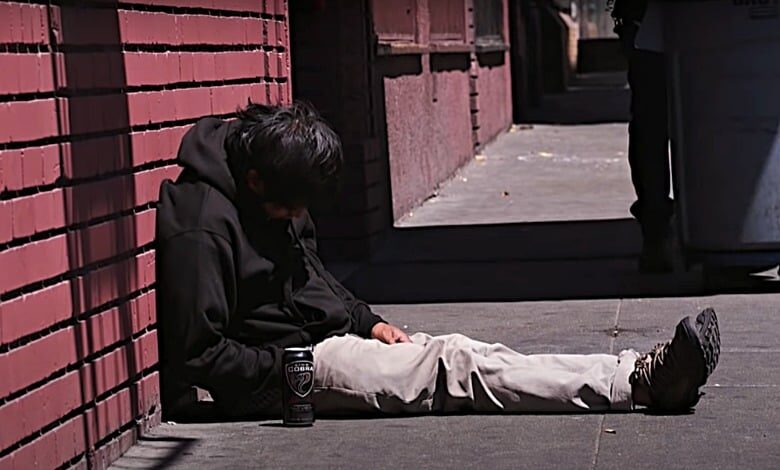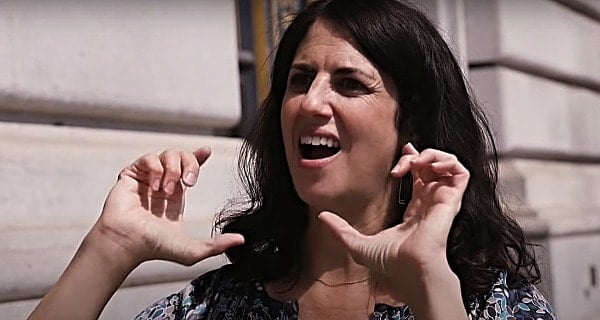Chilling ‘Chaos by the Bay’ Connects the Progressive Dots in San Francisco
Christopher Rufo's short film might even shock the city's liberal voters

The corporate press conveniently ignores stories that paint progressives in an unflattering light.
Consider how reporters clumsily call violent Black Lives Matter protests “mostly peaceful.” That’s where new media steps in.
Sometimes it’s an apolitical comic calling out Cancel Culture. It might be a radio talker creating a documentary outside the Hollywood ecosystem to give an unsung demographic a voice.
With “Chaos by the Bay,” documentary filmmaker Christopher Rufo shames media outlets refusing to connect the dots between progressive leaders and their failed policies.
HiT reached out to Rufo to learn more about the 11-minute documentary, why he made it available for free and what conservatives need to know about popular culture.
HiT: We’re seeing rising rates of crime, drug abuse and homelessness in several U.S. cities … why did you select San Francisco?
Christopher Rufo: San Francisco is a bellwether for progressive governance. It’s at the forefront of every progressive policy fad, from “decriminalizing homelessness” to “harm reduction” to “Housing First.” I wanted to show exactly what has resulted from these choices and answer the question why.
RELATED: Late Night Gaslighting: Meyers Downplays Portland Violence
It’s been consistently surprising to me how little most residents of the major West Coast cities have been able to connect the dots from the policy choices of their leaders to the results on their streets. This film makes the connection between the two in an explicit and unflinching way.
HiT: You’ve released the video, for free, on YouTube. Can you share your thinking on this strategy, and does that make it challenging to recoup costs?
Rufo: I’m doing a series of short films that have been funded by philanthropic donations, so there is no profit-pressure—I can release the films for free and generate conversation about them. In contrast to some of my feature films, this is a more enjoyable process. It’s about making a splash, not cranking out VOD sales.
HiT: Was it difficult to snag Hillary Ronen for an interview? Did you try to interview other Democrats for the film?
Rufo: I reached out to all of the county supervisors and other fixtures in progressive San Francisco politics. Most of them were happy to sit down for an interview. I try as much as I can to give people a fair shot, edit them to accurately reflect their views and then respectfully layer in my interpretation and analysis.

It’s funny: I believe all of the people in the film, even those critical of the current policies, would probably identify as Democrats. But they are “old school Democrats” that think crime, public camping and open drug use are bad—which is in contrast to the dominant position right now.
HiT: ‘Chaos By the Bay’ interviews a veteran San Francisco journalist who bluntly categorizes the decline. How have the city’s journalists, in general, covered the decay? What do you think they should do differently to better enlighten citizens?
Rufo: Miserably, with a few exceptions. The journalists in San Francisco, Los Angeles, and Seattle have shown remarkably little curiosity or understanding about homelessness. Ten years into the crisis, they still think it’s mainly about the price of rent—which has been debunked again and again.
I think there are two causes for this colossal lack of insight: first, most of the veteran journalists at daily papers are gone because of downsizing and retirements; second, the new class of journalists are underpaid millennials who drop into America’s prestige cities with a degree from Dartmouth and a commitment to progressive politics—but very little ability to understand the complexities on the ground and very little willingness to challenge the current dogma.
HiT: Voices on the right have dragged their feet regarding pop culture, but that appears to be changing witness Dinesh D’Souza, Nick Searcy, Larry Elder and others entering the arena – often via documentaries. How do you view pop culture when it comes to engaging the bigger issues of our times?
Rufo: I think “pop culture for conservatives” is doomed to be a failed enterprise. In a world of limited resources, we should focus on the highest impact-per-dollar and reach-per-effort—in other words, we should continue to build social media platforms that can be scaled at a small cost and reach a large audience without gatekeepers.
To produce another film adaption of Ayn Rand is a waste of money and, typically, will be done in a way that cannot match the aesthetic dominance of the left. On the bright side, conservatives are now dominating Facebook, Twitter, radio, and other platforms. Let’s focus on our strengths.
HiT: How do you avoid the ‘preaching to the choir’ effect when creating a movie like this? Any unexpected reactions to the film so far? Any future projects you’re working on?’
Rufo: Preaching to the choir is underrated—that’s how you channel energy into a movement. You can’t do that by preaching to skeptics. But for this film, it’s reached a broad audience in San Francisco and across the West Coast. I’ve heard from a number of influential people, including tech founders, who are desperate for change, but don’t know where to start. I’ve told them: “Start here.”
In the coming years, I hope these films and the other work I’m doing will lead to the emergence of a “West Coast dissident” movement that can challenge and eventually destroy the current progressive orthodox in the major West Coast cities.
One small step now, more to come.
